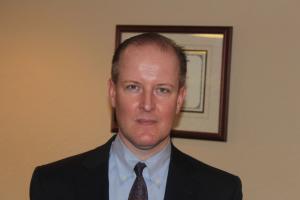Passage of Equality Act Raises Concerns among Religious Freedom Advocates
By:
EIN Presswire
May 19, 2021 at 15:00 PM EDT
Bill would expand LGBTQ rights without an exemption for religious groups, overriding the Religious Freedom Restoration Act (RFRA). by Candice Pillion
If the present version of the Equality Act is passed by the Senate, the RFRA could not be used to challenge the provisions of the Equality Act or otherwise prevent its enforcement.”
OCALA, FLORIDA, UNITED STATES, May 19, 2021 /EINPresswire.com/ -- As the Equality Act passed the U.S. House of Representatives in February, this proposed amendment to the Civil Rights Act elicited concern from Republicans and religious conservatives. Now, as the bill comes before the Senate Judiciary Committee, concerns regarding alleged limits on religious freedom have only mounted. — Mark Dillman, Florida Employment Law Attorney
The Equality Act is not a new piece of legislation. Although the current iteration of the act was considered by Congress in 2019, the Equality Act was first introduced in 1994. That version, which came up for consideration only a year after the passage of the Religious Freedom Restoration Act (RFRA), would have expanded LGBTQ rights in secular society but would have had no application to religious groups. The 2021 version of the Equality Act no longer exempts religious groups and, if passed by the Senate, could compel wide-reaching changes among the practices of religious institutions such as places of worship, universities, and hospitals.
RFRA prevents the federal government from imposing substantial burdens on the exercise of religion without a “compelling government interest.” Among the standards used by the U.S. Supreme Court to determine the constitutionality of a law, this is the hardest one for the government to meet. However, the Equality Act would bar religious groups from relying on RFRA as a defense to claims of unlawful discrimination against LGBTQ persons in regards to employment, education, public accommodations, and housing, among other areas. According to Thomas Jipping, a Senior Legal Fellow at the Heritage Foundation, this provision “slams the courthouse door to anyone who would even make an argument that government actions under the Equality Act burden their religious freedom.”
Mark Dillman, a Florida-based employment law attorney at the law office of James P. Tarquin, P.A., a Florida-based employment law attorney at the law office of James P. Tarquin, P.A., explains that the current version of the Equality Act contains an explicit provision stating that the Equality Act overrides RFRA. “Thus,” says Dillman, “if the present version of the Equality Act is passed by the Senate, the RFRA could not be used to challenge the provisions of the Equality Act or otherwise prevent enforcement of the provisions of the Equality Act.” Because the express language in the Equality Act stating that it overrides RFRA is politically volatile, Dillman thinks the version of the Equality Act passed by the House of Representatives will likely face significant opposition in the Senate, where it would need to obtain 60 votes to override a filibuster.
Of particular concern to many religious organizations is the act’s definition of the term “public accommodations.” Should the Equality Act pass, this term’s definition would be expanded from its current definition under the Civil Rights Act (which the Equality Act would amend to include protections based on sexual orientation and gender identity). While the term “public accommodations” previously included such areas as stadiums and retail establishments, the act would expand this category to prevent discrimination by, for example, transportation providers, banks, legal service providers, and online retailers. Many religious groups have expressed concern that the expansion of this term could result in consequences for religious institutions that use their properties for community events or as polling places.
While the act would eliminate the ability to discriminate against members of the LGBTQ community in these areas, religious groups would retain the right to exclude LGBTQ persons from consideration when making certain hiring decisions, such as those for positions involving the teaching or preaching of their faith. Many representatives of religious groups do not believe these minor exemptions are enough to protect the exercise of their religious convictions. “The Equality Act takes these spaces that have traditionally been regarded as privately operated enterprises and brings them in reach of this statute that was intended to combat race discrimination,” explained Dan Balserak, the U.S Conference of Catholic Bishops’ director of religious liberty. “I don’t think the concern is losing massive amounts of money,” Balserak added. “It’s being punished for the beliefs we hold.”
Alternatives offered by religious groups
Over recent years, momentum has built across American society to decrease discrimination against LGBTQ persons, with six out of ten Americans believing that businesses should not be able to turn away LGBTQ customers based on religious beliefs. Even certain religious organizations, such as the Seventh-day Adventist and Mormon Churches, have indicated their support for protections for the LGBTQ community. Many religious organizations, including the Council of Christian Colleges and Universities, believe that increased protections for LGBTQ persons are necessary, while disagreeing with the lack of religious exemptions provided by the Equality Act.
Some believe a compromise is available in the form of the Fairness for All bill. This bill, introduced by Utah Rep. Chris Stewart in February 2021, would offer protections against discrimination for LGBTQ people in public arenas, while providing broader exemptions for religious groups, allowing them to retain any federal benefits they receive without adopting more permissive policies toward LGBTQ persons. For example, the Fairness for All act would permit religiously affiliated hospitals to refuse to perform gender-affirming surgeries, or for religious universities to maintain codes of conduct that ban gay relationships.
So far, the Equality Act has no Republican sponsors, nor does the Fairness for All bill have any Democratic co-sponsors. Troy Williams, the director of the LGBTQ rights group Equality Utah, suggested that a small step forward could be better than none at all. “If we dig in our heels, and refuse to move, it could be another generation before we have a shot.”
Mark Dillman
James P. Tarquin, P.A.
+1 352-401-7671
email us here
More News
View More
Nike Beats on Earnings but Struggles in China and Faces Tariffs ↗
December 19, 2025
Via MarketBeat

Is the AI Boom a Bubble? These 2 Dividend Stocks Say No ↗
December 19, 2025

4 High-Potential ETFs for 2026: Small Caps, Space Stocks, and More ↗
December 19, 2025

META Rises Amid Tech Decline, Trump's AI Order Praised By Analyst ↗
December 19, 2025

TL;DR: Why Reddit is the New Growth Stock to Beat ↗
December 19, 2025
Via MarketBeat
Recent Quotes
View More
Stock Quote API & Stock News API supplied by www.cloudquote.io
Quotes delayed at least 20 minutes.
By accessing this page, you agree to the Privacy Policy and Terms Of Service.
Quotes delayed at least 20 minutes.
By accessing this page, you agree to the Privacy Policy and Terms Of Service.
© 2025 FinancialContent. All rights reserved.
>
